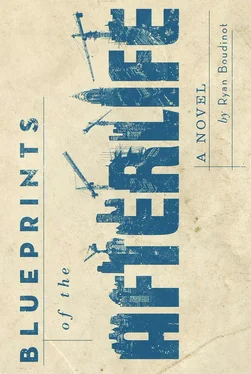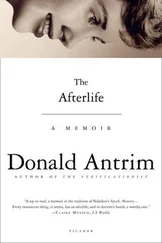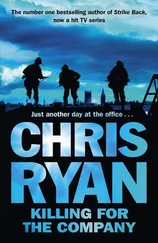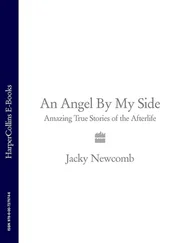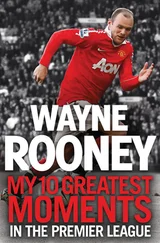On the street buildings moaned, harboring their captive ghosts. Woo-jin passed the Met, its doors open to a psychic blast furnace. Disturbed, he jogged across the street to get out of range of all the art howling from inside. Finally he found what he suspected he was searching for, a lonely and molested-looking phone booth. For some reason this one had been allowed to remain standing, an upright coffin reminder of how people used to conduct conversations while immobilized in public. A Yellow Pages sandwiched in a taco-like plastic shell dangled from the low shelf. He picked it up and looked for the Ls. Here: Literary Agents: See Agents, Literary. He found the Agents, Literary. Was anyone else going to need this section? Guiltily, Woo-jin tore the pages out of the book and stuffed them inside his coat, then hustled as fast as he could from the scene of his theft, pushing his rattly cart, until he was sure no cops were on his tail.
For days Woo-jin pushed his manuscript, from the Upper East Side to Tribeca, from the Financial District to SoHo to Midtown, proceeding alphabetically through the list of literary agents. In every instance, all the way into the D section, he found empty offices. Apparently the newmans weren’t in a hurry to assign anyone to represent former representatives of novelists and memoirists. He parked his cart in Washington Square Park, revising, slicing through whole sections with his Sharpie. It seemed that while he had been otherwise engaged, his book had begun to fall apart. It wasn’t that he’d accidentally shuffled the order of the pizza boxes—which, as it turned out, had actually improved the thing—but that the thoughts captured in it appeared to belong to someone far stupider than he. Overnight he’d lost confidence in his capacity to write the instructions he’d been assigned to write. Who the hell was he to tell anyone how to love people?
A parade tumbled through the park. A shambling thing, composed of salvaged clothes hanging from the angled frames of newmans, some of them playing instruments: battered brass and wind, a violin, an untuned guitar that struggled to assemble a chord. They looked beaten down, these unenthused servants of humanity, as if they’d been dry-humping existence to death. The instruments conspired to produce an off-key dirge and Woo-jin came to see that it was a funeral, with six pallbearers bearing aloft an aluminum casket. One of the newmans peeled off from the rest and slumped onto the bench beside Woo-jin. She sported a shaved head, fidgety hands, and something in her back that repeatedly clicked as if broken.
“Who died?” Woo-jin asked.
“Our great leader Stella Artaud! An old soldier from the FUS is capturing and torturing and killing my kind! Oh, how terrible, my heart can hardly bear it! Alas! A great violence has descended upon our creation! Oh, it’s horrible! I thought our races had resolved their differences. I thought we lived in peace! But still, oh! The horrors persist!” Artificial tears spurted from her ducts as from an overactive windshield washer on a car. The newman shuddered, and a piece of her face fell off. Frantically, she began picking at parts of her body, taking off a digit here, a chunk of fake flesh there, yanking wires from her gut, sensors from her skull, and in less than a minute all that remained was a grief-induced pile of components, not a single part connected to any other part.
The funeral passed and deposited in its wake a raggy heap that resolved itself into a man. As the man shuffled toward Woo-jin his very self seemed to generate garbage—a trail of soda cans and fish skeletons and fast-food wrappers and horseflies. His head looked like a giant beard with some eyeballs thrown in as a bonus. He took a seat beside Woo-jin to offer a few moments of pointless dialogue, all the while generating trash, which accumulated in piles around him, from the folds of his smelly garments. He eyed Woo-jin’s manuscript-on-wheels somewhat skeptically, as if it were a piece of public art that tested the boundaries of collective community standards. His filthy hand emerged from his rags. Woo-jin shook it. The man said his name was Glyph.
“So have you figured out the deal with this place, yet?” Glyph said. When Woo-jin shook his head, Glyph rolled his eyes. “They’re building this joint just to tear it down again, man. As soon as the last brick is laid, the whole shitty thing becomes one giant history lesson. They’re luring us humans in here so they can screw us over once again, getting it all populated and pretty as a picture before they reenact the FUS. Then they’ll rebuild it again and reenact it all over, on and on into the end of civilization. Get out while you can, brother.” A half-empty can of creamed corn fell out of Glyph’s pants and rolled along the cobbles. “What do you have going on here? Some kind of artwork?”
“It’s supposed to be a book. About how to love people,” Woo-jin said. At that moment the clouds opened overhead like they’d been gutted with a filleting knife. Desperately he pushed the cart, searching for an awning somewhere to protect the manuscript from the rain. Within seconds his fancy new clothes were soaked through. Suddenly the world went slapstick. Woo-jin slipped on a turkey bone jettisoned from Glyph’s garments and the cart teetered, then spilled its contents on the ground. On his hands and knees, Woo-jin tried to gather the pizza boxes with their words bleeding before his eyes. Here was his chapter about loving foster sisters who demand cookie-dough ice cream at two in the morning. Here were some sentences about washing dishes, about how not to eat your own tongue, about finding yourself ignored and alone in a trailer hauled into the sky.
By the time he was able to muscle the cart under the awning of a bodega the rain had lifted, leaving rainbows in its wake. Woo-jin pawed through the pile of wet cardboard looking for something salvageable but the words had turned into inky puddles and the pages had begun to disintegrate. As the manuscript fell apart, as the words grew more unintelligible, so too became the ideas those words had once propped up. How were people supposed to love one another? Woo-jin hadn’t a clue. All he had was his love for one person, the flawed, hideous human being his foster sister had become. How could loving someone as nasty as Patsy help him draft a treatise on loving anyone else? He remembered the message his future brain had left for him, that it was his responsibility to provide the Last Dude with reading material. What would a guy at civilization’s end need to know about loving people? And why would he need a guide book if there was no one around to love? In the rain, with the manuscript turning to mush, it came to Woo-jin what he had to write. All this time the book’s title had misled him. It wasn’t supposed to be about how to love people. It would be about how, at one time, we loved people. Woo-jin imagined the decrepit old man at his campfire, eating from the refrigerator’s never-ending bounty, his messages spread on the desert floor far below. To this audience of one, Woo-jin would write that there used to be human beings here. We used to love one another. Or we tried to love, we wanted to love, but we kept screwing up. We stumbled toward love but fear led us into shadows. When we found the capacity to love those who’d wronged us, those who seemed most undeserving of our love, in those delicate moments, marginalized by the sweep of history, our future appeared almost hopeful. His book, Woo-jin realized, would be the only thing telling the Last Dude that he too was loved. This distant retard’s voice recorded on brittle paper would be the only source of light in that final man’s heart. Whatever he’d done to earn this fate, this eternal hauling of rocks in a vast waste, Woo-jin would assure him that his suffering wasn’t for nothing, that as a human being he still deserved love, despite the fact that anyone who could possibly love him was long dead.
Читать дальше
